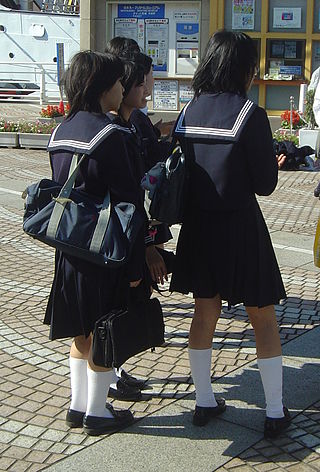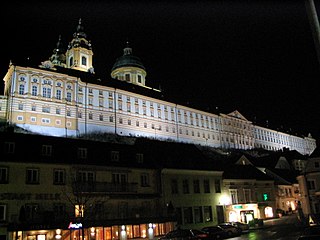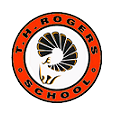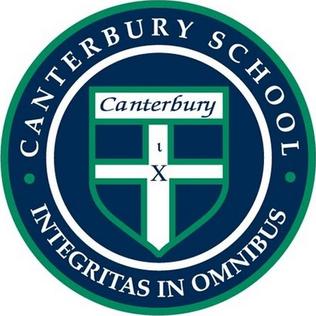
Standardized test is a test that is administered and scored in a consistent, or "standard", manner. Standardized tests are designed in such a way that the questions and interpretations are consistent and are administered and scored in a predetermined, standard manner.
A Bachelor of Education is an undergraduate academic degree which prepares students for work as a teacher in schools. A Bachelor of Education program typically lasts three to four years and combines both coursework and practical experience in educational settings. The curriculum is designed to provide foundational knowledge in pedagogy, educational psychology, teaching methodologies, and subject-specific training. Graduates of this program are equipped with the skills necessary to foster a supportive and effective learning environment for their students.
The University of Southern Indiana (USI) is a public university just outside of Evansville, Indiana. Founded in 1965, USI enrolls 9,750 dual credit, undergraduate, graduate and doctoral students in more than 130 areas of study. USI offers programs through the College of Liberal Arts, Romain College of Business, College of Nursing and Health Professions and the Pott College of Science, Engineering, and Education.

Matriculation is the formal process of entering a university, or of becoming eligible to enter by fulfilling certain academic requirements such as a matriculation examination.

Secondary education in Japan is split into junior high schools, which cover the seventh through ninth grade, and senior high schools, which mostly cover grades ten through twelve.
Education in Japan is managed by the Ministry of Education, Culture, Sports, Science and Technology (MEXT) of Japan. Education is compulsory at the elementary and lower secondary levels. Most students attend public schools through the lower secondary level, but private education is popular at the upper secondary and university levels. Education prior to elementary school is provided at kindergartens and day-care centres. The programmes for those children aged 3–5 resemble those at kindergartens. The educational approach at kindergartens varies greatly from unstructured environments that emphasize play to highly structured environments that are focused on having the child pass the entrance exam at a private elementary school. The academic year starts from April and ends in March, having summer vacation in August and winter vacation in the end of December to the beginning of January.

Education in France is organized in a highly centralized manner, with many subdivisions. It is divided into the three stages of primary education, secondary education, and higher education. Two year olds do not start primary school, they start preschool. Then, by the age of six, a child in France starts primary school and soon moves onto higher and higher grade levels until they graduate.

A student council is an administrative organization of students in different educational institutes ranging from elementary schools to universities and research organizations around the world. These councils exist in most public and private K-12 school systems in different countries. Many universities, both private and public, have a student council as an apex body of all their students' organisations. Student councils often serve to engage students in learning about democracy and leadership, as originally espoused by John Dewey in Democracy and Education (1917).

The Republic of Austria has a free and public school system, and nine years of education are mandatory. Schools offer a series of vocational-technical and university preparatory tracks involving one to four additional years of education beyond the minimum mandatory level. The legal basis for primary and secondary education in Austria is the School Act of 1962. The Federal Ministry of Education is responsible for funding and supervising primary, secondary, and, since 2000, also tertiary education. Primary and secondary education is administered on the state level by the authorities of the respective states.
A dean's list is an academic award, or distinction, used to recognize the highest level scholarship demonstrated by students in a college or university. This system is most often used in North America, though institutions in Europe, Asia, and Australia may also employ similar measures. It is often synonymous with honor roll and honor list, but should not be confused with honours degrees.

Thomas Horace Rogers School is an alternative primary and secondary public school and part of the Houston Independent School District. The school is at 5840 San Felipe in Houston, Texas, United States, outside of the 610 Loop and inside Beltway 8, west of Uptown Houston.

The Nationwide Unified Examination for Admissions to General Universities and Colleges, commonly abbreviated as Gaokao, is the national undergraduate admission exam of China, held in early June every year. The exam is held by provincial governments under the Ministry of Education's orders and is required for undergraduate admissions to all higher education institutions in the country. The exam is taken by high schools' graduating seniors at the end of their final year.

Education in Serbia is divided into preschool (predškolsko), primary school, secondary school and higher education levels. It is regulated by the Ministry of Education, Science and Technological Development of the Republic of Serbia.
Cathedral High School is a private Catholic high school in Indianapolis, Indiana. The school serves approximately 1,200 students in grades 9 to 12. The school was founded in Archdiocese of Indianapolis by Bishop Joseph Chartrand in 1918 and was run by the Brothers of Holy Cross until it became independent by the late 1970s. Holy Cross returned to the school in 2011.

Canterbury School is an independent, college preparatory day school for students aged 2 through Grade 12. The school is located in Fort Wayne, Indiana (U.S.). As of 2020, Canterbury School is ranked as the third-best private school in Indiana.
Grade inflation is the general awarding of higher grades for same quality of work over time, which devalues grades. However, higher average grades in themselves do not prove grade inflation. For this to be grade inflation, it is necessary to demonstrate that the quality of work does not deserve the high grade.
Education in Jamaica is primarily modeled on the British education system.
Education in Croatia is a right defended by Article 66 of the Constitution which states that everyone is entitled to free compulsory education under equal conditions and in accordance with their aptitudes. Education is mandatory for children aged 6 to 14.
Discrimination in education is the act of discriminating against people belonging to certain demographics in enjoying full right to education. It is a violation of human rights. Education discrimination can be on the basis of ethnicity, nationality, age, gender, race, economic condition, language spoken, caste, disability and religion.

Fort Bragg Unified School District, a public school district in Mendocino County, oversees public primary and secondary education in Fort Bragg, California and the surrounding area, accountable to both the local voters and the California Department of Education. It was organized in 1895, shortly before the town formally incorporated, for the families of the fast-growing number of men moving to the area to work for Union Lumber Company or one of the other local lumber mills during the logging boom of the late 19th century.











